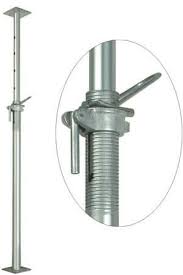Dec . 06, 2024 01:41 Back to list
formwork and rebar manufacturer
The Importance of Formwork and Rebar in Modern Construction
In the realm of construction, the roles of formwork and rebar are pivotal yet often overlooked. Together, they form the backbone of structural integrity in concrete construction projects, ensuring that buildings, bridges, and other infrastructures are safe, durable, and capable of withstanding the test of time.
Understanding Formwork
Formwork is a temporary or permanent mold that shapes and supports concrete until it achieves sufficient strength to support itself. It comes in various materials including wood, metal, or plastic. The choice of formwork depends on project requirements, budget, and the desired finish of the concrete surface.
One of the primary reasons formwork is indispensable in construction is that it provides the necessary containment for freshly poured concrete, maintaining its shape and enabling it to cure properly. Moreover, well-engineered formwork systems can enhance construction efficiency by allowing faster installation and stripping times, reducing labor costs significantly.
In recent years, the development of advanced formwork technologies, like modular and eco-friendly systems, has made construction processes more efficient and sustainable. Modular formwork systems, for example, are reusable and can be assembled in different configurations for diverse building shapes, thus promoting adaptability and reducing waste.
The Role of Rebar
Rebar, or reinforcing bar, is a crucial component used to enhance the tensile strength of concrete. While concrete is exceptionally strong in compression, it has a weakness in tension. This is where rebar comes into play. Made typically of steel, rebar is embedded into concrete to absorb and redistribute tensile forces. This makes structures safer and more resilient against various forces, including environmental pressures.
The use of rebar is guided by engineering principles that dictate its placement, spacing, and size based on the load-bearing requirements of the structure. Calculating the appropriate amount of rebar is essential for ensuring that the concrete can withstand the anticipated loads without cracking or failing. Innovative methods, such as using fiber-reinforced polymer (FRP) rebar, have emerged, offering corrosion resistance and reducing the overall weight of reinforced concrete structures.
formwork and rebar manufacturer

Integration of Formwork and Rebar
The coordination between formwork and rebar is critical for the successful execution of a construction project. Proper placement of rebar within the formwork needs meticulous attention to detail. The rebar must be correctly aligned and supported throughout the pouring process to avoid displacement, which can compromise the structure's strength.
Moreover, modern construction often involves complex designs and challenges that require bespoke formwork solutions and tailored rebar configurations. The collaboration between architects, engineers, and construction teams is vital to ensure that both formwork and rebar designs meet structural and aesthetic goals.
Innovations Shaping the Future
The construction industry is continuously evolving, and innovations in formwork and rebar technologies are fuelled by the demand for more sustainable and efficient building practices. Prefabrication techniques are becoming increasingly popular, allowing construction components to be manufactured in a controlled environment and assembled on-site. This not only speeds up the construction process but also enhances quality control.
Additionally, advancements in materials science have led to the development of new types of rebar, such as stainless steel and glass fiber composites, which provide enhanced durability and lower maintenance costs over the lifespan of a structure.
Conclusion
In conclusion, formwork and rebar serve as fundamental elements in modern construction, providing the necessary support and durability for concrete structures. Their successful integration is vital for the safety and longevity of any construction project. As the industry continues to progress, the importance of investing in quality formwork systems and high-grade rebar will only become more pronounced, making them indispensable in sustainable building practices. By understanding and optimizing these components, the construction industry can achieve higher standards of efficiency, safety, and resilience in the built environment.
-
Adjustable Heavy Duty Props for Slab Formwork - Max Load & Safety
NewsAug.30,2025
-
Premium Formwork Wing Nuts & Tie Rods | Factory Supplier
NewsAug.29,2025
-
Expert Ringlock Scaffolding: Durable, Safe, Efficient Solutions
NewsAug.28,2025
-
Ringlock Scaffolding: Strong, Safe & Efficient Solutions
NewsAug.27,2025
-
OEM Column Formwork: Circular, Curved & Inclined Solutions
NewsAug.26,2025
-
Premium Scaffolding Jacks: Stable, Adjustable & Durable
NewsAug.25,2025